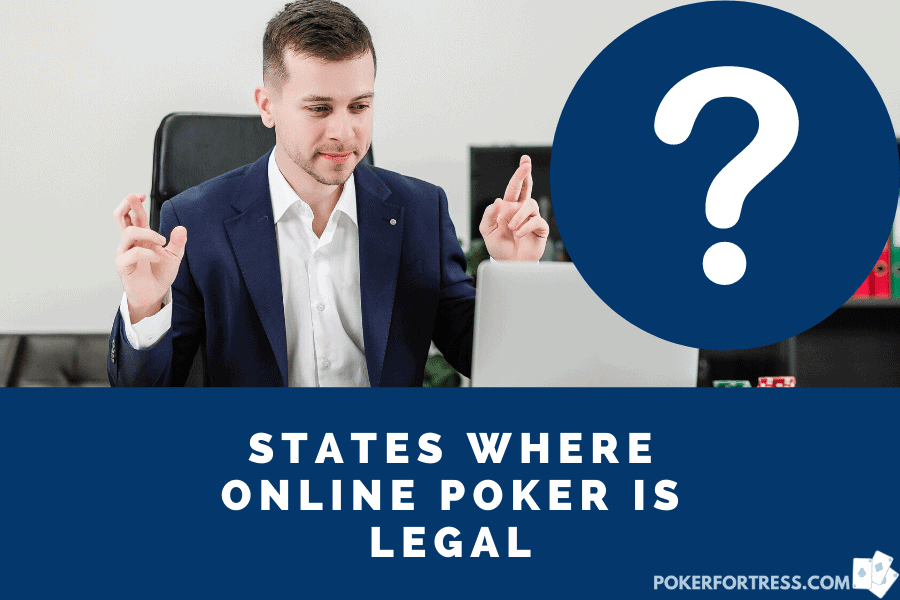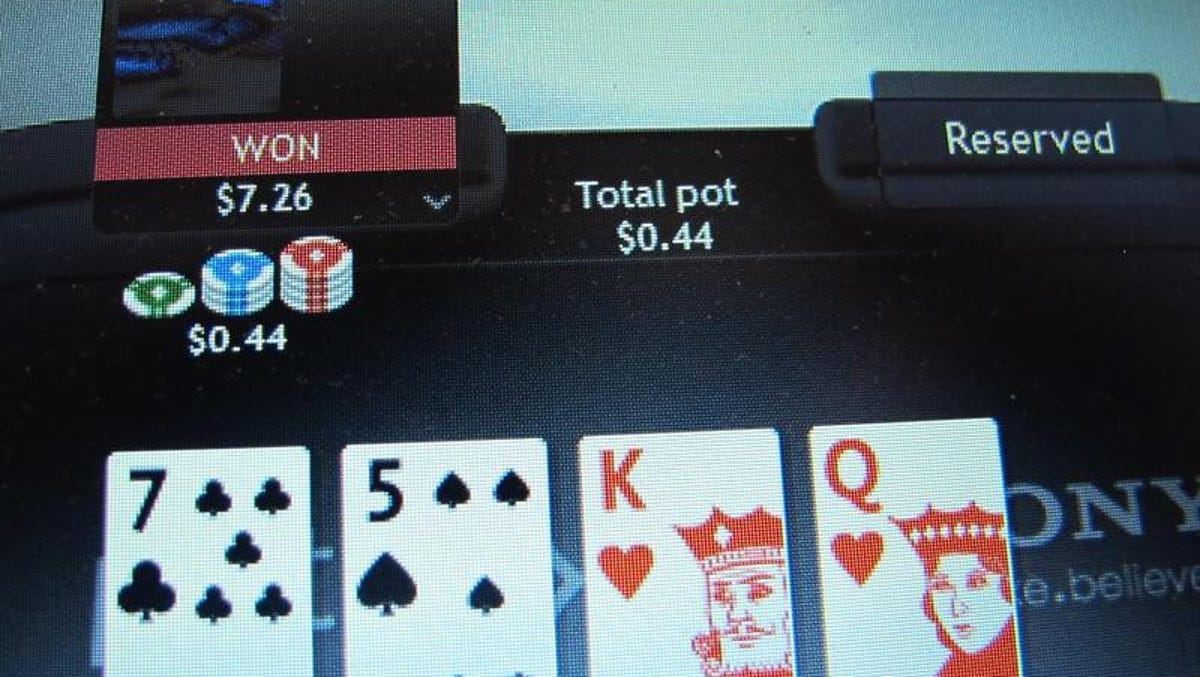Online Poker States
- Online Poker Stats
- Online Poker States Legal
- Online Poker Gambling Legal
- Online Poker With Friends United States
- Online Poker New Jersey is currently the largest market for regulated online gambling in the US. Over a dozen legal and licensed online casino sites and poker rooms compete for an overall market that is worth more than $225 million a year. Read more on New Jersey Online Gambling.
- State-regulated, real-money online poker is legally available in only a handful of states. As of July 2020, players in New Jersey, Nevada, Pennsylvania, and Delaware enjoy access to legal online poker sites. Michigan and West Virginia have passed legislation to make online poker legal, but the launch of products is pending in those states.
- Online poker launches in Delaware. Online poker games finally launched in on a three-site shared network in the state on Nov. Right from the get-go the market proved to be quite small. In fact, the sites averaged only about 20 players in off-peak times and 40 players at peak times. The numbers have remained the same throughout legal.
- Online sports betting, casino games, and poker are all legal in West Virginia. Online sportsbooks were the first to launch in late 2018, followed by online casinos in 2020. The first regulated WV online poker sites have yet to appear. Who can offer online gambling in WV?
Realtime poker statistics. Poker statistics for all online poker players are updated real time and online poker results and rankings are added to Official Poker Rankings (OPR) every hour 24/7. Poker standings and all poker players ratings and the OPR poker, OPR profit.
One state legalized and regulated online poker in the past four years. That does not seem like enough of an impetus for an avalanche of other states to follow. However, a number of other factors could combine to make that avalanche happen.
Pennsylvania’s decision to legalize and regulate online poker and casino games in 2017 was a milestone, of course. It will likely begin operations in 2018 alongside New Jersey, Nevada, and Delaware. And Pennsylvania might also join the interstate online poker network recently finalized among the other states to link all online poker player pools together. These are important factors in creating that avalanche.
Further, however, there are more potential influences on the internet gaming industry in America, most significant of which is the sports betting case now before the US Supreme Court. A positive decision from the justices in the spring of 2018 could open up a substantial online wagering market that has the potential to scoop online gaming into it. Finding revenue in online sports betting and daily fantasy sports can easily lead to many states adding online poker and casino games to the mix.

Finally, a renewed push just emerged to ban online gambling on the federal level, as two prominent US senators requested that the Department of Justice reverse the 2011 Wire Act decision. The request was made to US Deputy Attorney General Rod Rosenstein, who has notoriously been willing and ready to prosecute cases involving online gambling. The fear that this could happen and remove the ability of states to license and regulate their own internet gambling markets could prompt some states to act sooner rather than later.
There are five states that seem very likely to strongly consider online poker legislation in 2018, and it would not be surprising if one or more passed those bills into law. But then there are other states who have touched on the subject in the past or could become contenders to debate the subject in 2018 or beyond. It is not likely that any of them will, but speculation can be fun.
California
Some may put California on the category of most likely to pass an online poker bill, but ten years of efforts recently wrapped up in 2017 with less of an effort than in years past. The tribal and commercial gambling factions in the state are so set against compromising on the bad actor clause – whether or not to allow PokerStars into the state based on its past in the US market – that legislators were not even willing to give it much effort this year.
There is always a chance that California legislators will find a way to make everyone happy, but it seems unlikely when both sides of the debate are unwilling to move.
Massachusetts
Until the 2017 developments, Massachusetts was also in the category of more likely than not to pass online gaming legislation. There were several supporters in the state legislature, and they were supported by Massachusetts Gaming Commission Chairman Stephen Crosby. However, even with Crosby at the helm of a special commission that examined internet revenue possibilities, the final report issued this summer supported only the legalization and regulation of daily fantasy sports (DFS). The commission recommended to the state legislators that DFS should be set up with a proper regulatory framework, one that can be used for other forms of online gaming in the future.
While there are chances that some Massachusetts lawmakers could push for online gaming again in 2018, it is more likely that DFS will move forward and online gaming put on the back burner for at least the coming year.
@aaronkessler online poker to be legal in Massachusetts by end of 2018 or century
— jack ryan (@jackry11) December 25, 2016
Hawaii
It may seem odd that Hawaii is on the list at all, since there is no regulated gambling on the islands whatsoever. Most legislators are staunchly opposed to allowing any form of gambling to be seriously considered for any reason, though bills continue to be introduced to blaze a path toward online poker and casino game regulation. Even so, it is highly unlikely that Hawaii will move forward in any way.
Sheldon Adelson spends a lot in his quest to strip states like Hawaii of their right to protect consumers by licensing online #poker.
— Rich Muny (@RichMuny) May 20, 2017
Connecticut
Some analysts have put Connecticut on lists of higher-than-average likelihood of considering online gambling legislation in 2018. Several reasons have been given, one being the desire of the state’s land-based casinos – like Foxwoods and Mohegan Sun – to expand their influence in the state and beyond. In addition, Connecticut is part of the East Coast US, where New Jersey and Delaware are now being joined by Pennsylvania in the new industry.
The proximity of Connecticut to the industry and its need to compete for consumers’ gambling dollars may push the state to strongly consider legislation in 2018. However, with its lack of lawmaker education on the topic, it is more likely that the state will take at least one or two years to consider the possibility.
Maryland
With casinos like Maryland Live! doing quite well, legislators have been seeking ways to slowly expand the state’s gambling industry to compete with neighboring states like Pennsylvania. No significant legislation has been introduced in past years to legalize and regulate online poker and casino games, but the burgeoning industry of New Jersey plus the upcoming one in Pennsylvania may inspire some Maryland lawmakers to take a closer look.
Hey @ppapoker why r the politicans in Maryland so anti online poker when u can play keno from home? #doublestandardspic.twitter.com/u8XlARAJLX
— Viktor Cumpston (@Darkman_Donkey) April 30, 2015
Others
Simply for the sake of mentioning some other longshot possibilities, it is worth mentioning Ohio, Vermont, and Rhode Island due to their proximity to other online gambling states, as well as Washington because of the bills introduced in the past and the support of a strong poker-playing community there.
Thank you Pennsylvania for bringing iPoker to your state. I look forward to coming from Ohio to play online poker! Ohio needs this too.
— Tim Continenza (@TimContinenza) October 27, 2017
Related Articles

Home» US Poker Laws » State Laws
The gambling laws of US states are best collectively described as a mashup, a tangle of differing philosophies, definitions and priorities.
Below you'll find a quick synopsis of gambling laws in each US state, along with a link to a detailed report for every state. Each review provides a plain-language interpretation of the state's gambling laws, an analysis of the legal status of online gambling and poker in general in the state.
The US state gambling laws include a review of recent developments relevant to online poker players. The state pages on this site are updated often to reflect the most recent developments for legal poker in the USA.

To help you navigate this page better, we've provided an interactive map. Simply click on a state within the map and the page will load that particular section for you.
Alabama Poker: State allows very limited types of gambling and considers poker to be gambling. Severe punishments for both players and operators. State law does not directly mention online gambling.
Alaska Poker: No lottery and very little regulated gambling in this state. Poker could qualify as game of skill, but case law suggests it is considered gambling. No specific law regarding gambling over the Internet.
Arizona Poker: One of a handful of states that expressly prohibits online gambling. Several forms of regulated gambling available. State law (and enforcement) primarily targets those who profit from illegal gambling activity.
Arkansas Poker: Broad definition of illegal gambling. Some parts of state law may have direct applicability to online gambling. Individual gamblers are not a focus of criminal charges related to illegal gambling.
California Poker: Offers a variety of regulated gambling options. No specific law addressing the issue of online gambling. Seems close to passing some sort of regulation, likely poker-only.
Colorado Poker: Expansive definition of gambling underpins strict approach to unregulated gambling. Poker is considered gambling. While law does not address online gambling specifically, state officials contend such gambling is illegal.
Connecticut Poker: Poker specifically mentioned in statutory definition of gambling. No law dealing directly with Internet gambling or online poker. Home poker games legal if no rake is taken.
Delaware Poker: Recently passed law to regulate some forms of online gambling. Players face only minor criminal exposure for participating in illegal gambling.
Florida Poker: Poker hotbed has very restrictive anti-gambling laws. Very few ways to play poker or gamble and be within the letter of Florida law. State has seen a handful of failed attempts to regulate online poker.
Georgia Poker: Poker players have almost no regulated - and therefore no legal - options for real money poker. State has constitutional ban on almost all forms of gambling.
Hawaii Poker: No regulated gambling of any sort in the 50th state. While online gambling not addressed directly, several aspects of state law could still apply. Individual gamblers not a primary target.
Idaho Poker: Possibly the broadest definition of gambling in the US. Poker directly mentioned. Online gambling possibly addressed by constitutional prohibition on gambling. Penalties relatively minor for players and operators.
Illinois Poker: Broad selection of regulated gambling and severe approach to unregulated gambling. State law specifically prohibits the operation of an online gambling site, but not necessarily playing at one.
Indiana Poker: State takes aggressive approach to illegal gambling. Players appear to be targets along with operators. Indiana has a law outlawing the operation (but not the use) of online casinos.

Iowa Poker: Does not draw a clear distinction between participants and operators. Severe potential penalties for both. State seems poised to pass some sort of online gambling regulation soon.
Kansas Poker: A litany of regulated options contrasts with a strict approach to unregulated gambling. State lottery oversees commercial casinos, a unique arrangement. No apparent momentum for online gambling regulation.
Kentucky Poker: Has legal online betting on horse racing. Practically zero criminal risk for those who merely participate in illegal gambling, but substantial exposure for those who profit from or otherwise advance such activity.
Louisiana Poker: Vague definition of gambling creates legal uncertainty. State law does specifically prohibit gambling online or running online gambling business.
Maine Poker: No penalties for mere players who take part in illegal gambling. Home poker games legal under Maine law. No direct mention of online gambling or online poker.
Maryland Poker: Gambling law differs county-to-county. Generally stiffer potential penalties for players than average. No direct reference to online gambling, but Maryland law has been to used to prosecute several operators.
Massachusetts Poker: Very broad definition of illegal gambling. Players face substantial charges in theory, but enforcement efforts do not appear to target players. No specific law covering gambling over the Internet.
Michigan Poker: Operators and players alike face harsh penalties in Michigan, which specifically identifies poker as a form of gambling. Internet gambling not addressed directly by any part of the law.
Minnesota Poker: State provides some forms of regulated gambling. Poker is likely considered gambling. Home poker games are excluded from anti-gambling law given that no one profits from running the game.
Mississippi Poker: Poker specifically identified as gambling. Minor penalties for those who are only players in illegal gambling activities. No part of Mississippi law deals specifically with Internet gambling.
Online Poker Stats
Missouri Poker: Possibly the most severe penalties for players of any state in the nation. Lacks any law constructed to deal with online poker, but state officials assert such gambling is illegal under existing law.
Montana Poker: Law expressly prohibits online gambling but seems primarily focused on operators and not players. Otherwise, both players and operators involved in illegal gambling face stiff penalties.
Nebraska Poker: Difficult to identify a way in which playing poker for money could be legal in Nebraska. Little to no apparent interest in regulating online poker or online gambling.
Nevada Poker: First in the nation to issue licenses to online poker operators. Anti-gambling laws almost exclusively focused on those running illegal gambling operations and not on mere players.
New Hampshire Poker: Fairly narrow definition of gambling that may or may not include poker. State law doesn't appear to cover online gambling directly.
New Jersey Poker: Plenty of regulated gambling options available in New Jersey. State appears close to passing online poker regulation (and perhaps a larger package of online gambling regulations).
New Mexico Poker: A very broad definition of illegal gambling but no direct mention of online gambling or online poker. Home poker games apparently illegal under state law.
New York Poker: State anti-gambling laws formed heart of Black Friday indictments. Home poker games allowed. Despite Black Friday role, no mention of online gambling in state law. Players face little risk or liability in New York.
North Carolina Poker: No definition of 'game of chance' creates confusion in state gambling law. Relatively weak penalties for anti-gambling law violations. State may soon regulate so-called 'Internet sweepstakes' cafes.
North Dakota Poker: Very broad definition of illegal gambling, but little apparent enforcement. Has some potential to regulate online gambling in the near term. Home poker games legal or illegal based on stakes involved.
Ohio Poker: Poker specifically defined as 'game of chance.' Home games legal at any stakes. State seems to have significant likelihood of regulating online gambling in near term.
Oklahoma Poker: Tons of regulated gambling options, but very stiff penalties for unregulated gambling. Transmission law may cover Internet gambling.
Oregon Poker: Law specifically prohibits financial transactions related to internet gambling. Poker for real money legal in a variety of regulated formats.
Pennsylvania Poker: Players in illegal gambling activities face no liability. State has somewhat confused approach to gambling thanks to lack of clear statutory definitions. Online gambling regulation seems fairly likely in next two years.
Rhode Island Poker: Ambiguous gambling law but players do not appear to be targets of the law or enforcement efforts. Rumored interstate poker partner for Delaware.
South Carolina Poker: State Supreme Court will soon decide if poker is a form of gambling. Centuries-old laws regarding gambling still on the state's books make many common games such as Monopoly technically illegal.
South Dakota Poker: Very aggressive approach to illegal gambling. Very broad definition of what activity constitutes illegal gambling. State law explicitly criminalizes operation of online gambling businesses.
Tennessee Poker: More or less prohibits all forms of gambling, save the state lottery and some forms of charitable gambling. Law does not directly tackle online gambling.
Online Poker States Legal
Texas Poker: Significant factions of state government and the public vociferously opposed to gambling. Utilizes very broad definition of gambling that includes betting on any activity involving any chance.
Utah Poker: No regulated forms of gambling. Pre-emptively opted out of any federal law regarding online poker in 2018. Least likely of the 50 states to regulate online poker or gambling.
Vermont Poker: Relatively limited law regarding gambling. Minor penalties and low-priority enforcement for individual gamblers.
Virginia Poker: State takes what amounts to an average approach to anti-gambling laws and enforcement. No law specifically designed to cover online gambling.
Washington State Poker: Only state to make placing a bet online a felony. State allows a wide variety of regulated gambling options, including commercial and tribal casinos.
West Virginia Poker: State allows wide array of regulated gambling. Minor penalties for players engaged in illegal gambling. Frequently mentioned as potential interstate online poker partner for neighbor Delaware.
Wisconsin Poker: Home to a handful of regulated gambling options. Fairly strict laws regarding unregulated gambling and higher-than-average arrest numbers for such charges.
Online Poker Gambling Legal
Wyoming Poker: Very broad definition of illegal gambling. One of a few US states to not have a lottery. Relatively minor penalties for engaging in illegal gambling.
Online Poker With Friends United States
District of Columbia Poker: Home to nation's capitol and an attempt to regulate online gambling that failed in 2018. Anti-gambling laws relatively limited.